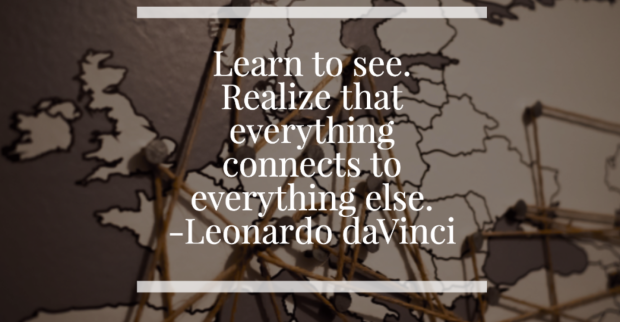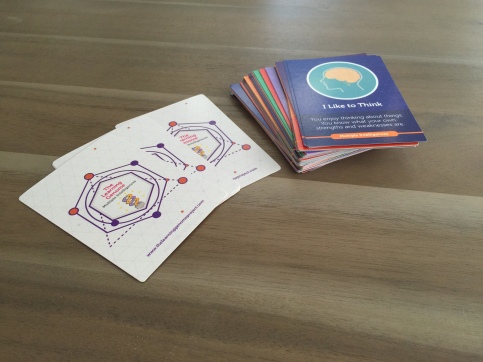Ten years ago, I was a computer teacher and a technology integration specialist. I taught 475 students every week, worked closely with teachers to ingegrate technology meaningully into their classrooms, and worked closely with the curriculum so that I knew how to integrate it meaningfully.
It was in this moment of time that I discovered a catastrophic problem that would change the course of my life: The curriculum didn’t know the students it was designed for. It couldn’t possibly know who they were and what their stories were. As teachers, we knew these stories, and yet we were being held back from fully embracing the identity and genius of the students in our classrooms because we were teaching from a curriculum that didn’t know them. Worse still, testing was dictating what the learning interaction would look like.
I felt a deep sense of urgency to change this…NOW! Because these 475 kids I was teaching every week? They didn’t have the luxury of time for education policymakers to get it right, they (unhelpfully) kept growing up.
I’ve dedicated the last nine years to learning how to honor identity by giving students agency over their learning through personalization. What started as an idea for a piece of technology has turned into a school, which has become a movement of good.
Our goal at Anastasis is to create a high-purpose environment where every student knows who they are, where every student is valued as a member of a team, where feedback is real-time and valuable, where we have the shared goal of becoming the very best version of ourselves.
At Anastasis we begin by connecting. We get to know a student on a deep level, and before the school year even begins, students receive a sense of belonging. Our first weeks of school are all about signaling: you are valuable, you are worth knowing, you are worthy of one-on-one time, you belong here. How do we do this? Through Learner Profile Days and Detox Week.
Learner Profile days are predicated on the belief that every one of our students is standing in a spot in this world that they alone inhabit. Wholely unique in the course of history. They are a collection of their history, experiences, gifts, hopes, their fears and insecurities. We believe that every one of our students holds a place in this world that’s valuable and important. The world needs us to honor these individuals. To see them as individuals and help them grown in their gifts. Our goal can never be to make them close approximations of “perfect student” in a one-size-fits-all system. The complex problems of our world won’t respond to one-size-fits-all solutions. We NEED people with different points of view who can communicate, collaborate, and who can appreciate other points-of-view and gifts as equally valuable, not as competition.
Our first two days of school are designed so that our teachers can have one-on-one time (an hour) with every one of their students. During this hour, they use the Learning Genome Card Sets to help students tell their stories. More than a boiled down version of what categories students trend in as learners, the cards are meant to activate narrative. The cards act as a launching point for students to add details and tell stories about who they are. They help teachers get answers to questions we may not have known to ask. Inevitably we also gain great information about how they like to learn. The real magic is in the stories. In that hour-long one-on-one, students have a safe place to share, they have a captive audience, and teachers get to know them on a deeper level. The kind that usually takes a full year to develop. From this card game, we develop the Learner Profile. This is a document where we record what a student’s learning preferences are. The document is helpful, but it isn’t really the point. The point is connection. The start of relationship and community.
The Learner Profile becomes a place where we help students discover and flourish as individuals who know who they are and why they are here, who know what they are passionate about, who explore the world and make connections with who they are, and to see that each one of them has the capacity to change our world using their gifts. The Learner Profile gives them a starting point to understand what their hearts beat for. What they were uniquely put on this earth to do (and that it’s a never-ending journey!)
Detox Week is a week where we help kids “detox” from the false messages they’ve learned about themselves, community, and learning. We break down the message that they lack in some way, that they may not be “enough.” We work to help kids see that community is more excellent than competition in a learning environment. We want them to understand that real learning is a journey that will include risk, and trials, and setbacks, and failure, and iteration, and success.
During Detox week, kids fail spectacularly. Our goal is ultimately to help them see that Anastasis is a safe place to fail, that it’s okay to be vulnerable, to ask for help, and to iterate on ideas. During Detox Week kids also start to learn that honest, kind, critical feedback will be our norm. We give real feedback because we have high expectations and know that each of them can reach those expectations. Over and over again in this first week of school, we’ve designed the experiences to send the message: You are inherently valuable and worthy. You belong to Anastasis today and in the future. We believe in each of you. It’s okay to keep iterating, in fact, that is learning!
We let kids know that their learning this year won’t be about a grade, it will be about learning. Anastasis will be a safe place to give effort and iterate (by the way, I do the same thing with professional development for teachers: Exhibit A, Exhibit B). During Detox Week we send the message that learning is bigger than school, learning is life. We send the message that there is a gift in the struggle, an art that plays out in the journey toward mastery.
Detox Week is meant to inspire laughter and provoke small moments of crisis where they will be frustrated. As it turns out, this is one of life’s greatest bonding experiences. Detox Week becomes a moment in time where our students share experiences that we can refer to, and learn from, all year long.
Detox Week helps us establish a school culture for the year. It helps students see who they are and that they belong here, in this community. When they get to know themselves as individuals, they can start to appreciate the gifts that others bring. They can begin to see how they are connected and that their contribution matters. They begin to see that they are safe to be themselves, safe to make mistakes. So often I see educators elevate failure as a good thing…champion it even, but without laying the foundation for that kind of vulnerability, the lip service does students no good. Let’s be real; learning is an act of vulnerability because it comes with failure. To not provide genuinely safe conditions is to hinder students in their learning.
So, what does Detox Week look like practically? We start by helping our students see and appreciate their own identity. Through the books we read together, with a look at their learner profile, through metaphor, and quotes. We talk about how rainforests have a symbiotic diversity nature, and that the diversity of a rainforest is actually what makes the whole thing healthier. If you plant just one kind of plant, the rainforest would be weaker. This is the same in our classroom, and indeed life. Where there is diversity, there is life. Having a diversity of gifts and vantage points makes our classroom, school, and world healthier. We can work together. We talk about the idea of collective intelligence. We are smarter, stronger, wiser together.
Next, we put our students in teams and situations where they will be challenged. They will fail spectacularly. Then we let them take a step back, talk with their team, and iterate. They tackle it again, and again, and again. There have been tears. There have been shouts of frustration. There is always some laughter. In the end, bonds form. Kids learn that it is okay to be vulnerable. That they can succeed when they work together and listen to each other when they appreciate each other’s gifts. (You can check out other activities/ideas/inspiration we’ve had around Detox Week on Pinterest.)
The oldest two classes (6-8th grade) go on a three-night camping trip together where all of these lessons get reinforced.
We end Detox Week with Identity Day. We edu-lifted this idea from George Couros years ago! Identity Day is a day where every student prepares an exhibit that shares something about who they are. We invite everyone in: parents, teachers, students, grandparents, friends. We celebrate that each of us is unique and the part we play in our community.
When you ask Anastasis students what three things they love about our school we get the same three answers over and again:
1. You know me.
2. I have the freedom to learn here.
3. This community feels like family.
That life-changing moment has led to a school where kids are known. We start here.

